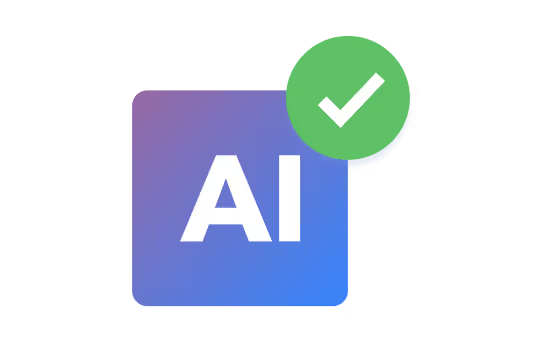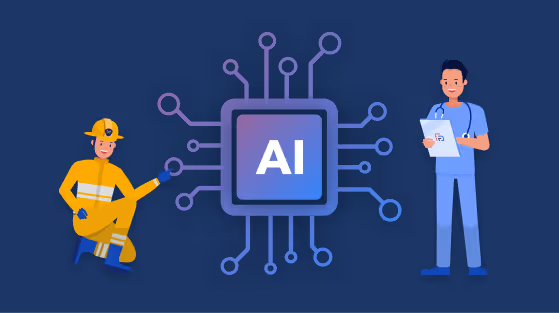AI & Automation in Fire Department Scheduling: The Next Generation of Workforce Management
.avif)
Fire departments operate in a fast-paced, unpredictable environment where staffing challenges can arise at any moment. Managing schedules, ensuring compliance, and balancing workloads can be time-consuming and complex, often requiring manual adjustments and last-minute changes.
With the introduction of AI-driven scheduling, First Due is transforming the way fire departments handle workforce management. By leveraging automation and predictive analytics, agencies can now optimize staffing, reduce administrative burdens, and enhance operational readiness—all while maintaining full control over their scheduling process.
How AI Optimizes Staffing & Shift Coverage
Fire department scheduling is highly dynamic, with personnel frequently needing shift changes due to sick calls, trades, and vacancies. Traditionally, managing these changes has required constant monitoring and manual intervention, leading to inefficiencies and inconsistent staffing practices.
AI-powered scheduling eliminates this challenge by learning from historical staffing patterns, department policies, and personnel preferences. Rather than relying on a reactive approach to filling shifts, AI analyzes real-time data and suggests the best staffing decisions based on agency rules.
Departments have full control over automation, allowing them to configure AI recommendations to fit their comfort level—whether that means automating shift assignments entirely or simply using AI-driven insights to guide decision-making. This flexibility ensures that every agency can adopt AI at their own pace while maintaining the level of oversight they need.
How AI Reduces Overtime Costs
Unplanned vacancies often result in costly overtime, especially when departments rely on last-minute shift assignments to fill gaps. Fire agencies can spend significant resources managing overtime manually, often leading to mandatory shifts and increased stress on personnel.
By integrating AI-driven predictive staffing, First Due’s scheduling system allows departments to:
- Proactively fill shifts farther in advance, reducing last-minute staffing emergencies.
- Analyze historical overtime trends to identify patterns and reduce unnecessary costs.
- Optimize shift assignments by ensuring personnel are scheduled efficiently before gaps occur.
AI also enables departments to shift away from mandatory overtime, allowing personnel more control over their schedules. When shifts are assigned further in advance, firefighters have greater flexibility to plan their work-life balance, leading to increased job satisfaction and lower burnout rates.
Ensuring Compliance with AI-Driven Automation
Compliance is a critical component of workforce management in fire departments. From union contracts to FLSA regulations, departments must ensure that scheduling practices align with labor laws and department policies.
AI-driven scheduling enforces compliance automatically by applying department rules to every staffing decision. Instead of relying on manual oversight, AI ensures:
- Labor laws and policies are followed consistently, preventing scheduling errors that could lead to compliance violations.
- Department-wide standardization of scheduling practices, ensuring fairness across all shifts.
- Automated time-off tracking and approvals, reducing administrative workload and increasing efficiency.
By creating a consistent and transparent scheduling process, AI minimizes disputes and ensures that staffing decisions are made fairly and in line with department policies.
Predicting Staffing Shortages & Emergency Response Needs
One of the most powerful benefits of AI-driven scheduling is its ability to predict staffing shortages before they happen. Rather than reacting to last-minute vacancies, fire departments can use AI to:
- Analyze seasonal trends and anticipate staffing needs for high-demand periods.
- Track personnel availability to ensure shift coverage is always maintained.
- Prepare for major incidents by using predictive analytics to recommend preemptive staffing adjustments.
AI can also integrate external data—such as weather patterns, historical call volume, and emergency response trends—to suggest staffing levels for specific conditions. For example, if a major storm is approaching, AI can recommend increased shift coverage based on previous response data, ensuring departments are prepared for potential surges in emergency calls.
First Due’s AI-Powered Scheduling: A Smarter Future for Fire & EMS
By introducing AI-driven scheduling, First Due is helping fire departments streamline workforce management and operate more efficiently. Instead of spending hours manually adjusting schedules, departments can now leverage AI recommendations to make faster, more informed decisions.
This technology is designed to support—not replace—human decision-making, giving agencies the ability to customize automation based on their comfort level. As AI continues to evolve, fire departments will gain even greater insights into staffing trends, operational efficiencies, and long-term workforce planning.
With proactive scheduling, real-time compliance tracking, and predictive analytics, AI is revolutionizing how fire departments manage their workforce—allowing agencies to focus on what matters most: keeping their communities safe.
Fire departments operate in a fast-paced, unpredictable environment where staffing challenges can arise at any moment. Managing schedules, ensuring compliance, and balancing workloads can be time-consuming and complex, often requiring manual adjustments and last-minute changes.
With the introduction of AI-driven scheduling, First Due is transforming the way fire departments handle workforce management. By leveraging automation and predictive analytics, agencies can now optimize staffing, reduce administrative burdens, and enhance operational readiness—all while maintaining full control over their scheduling process.
How AI Optimizes Staffing & Shift Coverage
Fire department scheduling is highly dynamic, with personnel frequently needing shift changes due to sick calls, trades, and vacancies. Traditionally, managing these changes has required constant monitoring and manual intervention, leading to inefficiencies and inconsistent staffing practices.
AI-powered scheduling eliminates this challenge by learning from historical staffing patterns, department policies, and personnel preferences. Rather than relying on a reactive approach to filling shifts, AI analyzes real-time data and suggests the best staffing decisions based on agency rules.
Departments have full control over automation, allowing them to configure AI recommendations to fit their comfort level—whether that means automating shift assignments entirely or simply using AI-driven insights to guide decision-making. This flexibility ensures that every agency can adopt AI at their own pace while maintaining the level of oversight they need.
How AI Reduces Overtime Costs
Unplanned vacancies often result in costly overtime, especially when departments rely on last-minute shift assignments to fill gaps. Fire agencies can spend significant resources managing overtime manually, often leading to mandatory shifts and increased stress on personnel.
By integrating AI-driven predictive staffing, First Due’s scheduling system allows departments to:
- Proactively fill shifts farther in advance, reducing last-minute staffing emergencies.
- Analyze historical overtime trends to identify patterns and reduce unnecessary costs.
- Optimize shift assignments by ensuring personnel are scheduled efficiently before gaps occur.
AI also enables departments to shift away from mandatory overtime, allowing personnel more control over their schedules. When shifts are assigned further in advance, firefighters have greater flexibility to plan their work-life balance, leading to increased job satisfaction and lower burnout rates.
Ensuring Compliance with AI-Driven Automation
Compliance is a critical component of workforce management in fire departments. From union contracts to FLSA regulations, departments must ensure that scheduling practices align with labor laws and department policies.
AI-driven scheduling enforces compliance automatically by applying department rules to every staffing decision. Instead of relying on manual oversight, AI ensures:
- Labor laws and policies are followed consistently, preventing scheduling errors that could lead to compliance violations.
- Department-wide standardization of scheduling practices, ensuring fairness across all shifts.
- Automated time-off tracking and approvals, reducing administrative workload and increasing efficiency.
By creating a consistent and transparent scheduling process, AI minimizes disputes and ensures that staffing decisions are made fairly and in line with department policies.
Predicting Staffing Shortages & Emergency Response Needs
One of the most powerful benefits of AI-driven scheduling is its ability to predict staffing shortages before they happen. Rather than reacting to last-minute vacancies, fire departments can use AI to:
- Analyze seasonal trends and anticipate staffing needs for high-demand periods.
- Track personnel availability to ensure shift coverage is always maintained.
- Prepare for major incidents by using predictive analytics to recommend preemptive staffing adjustments.
AI can also integrate external data—such as weather patterns, historical call volume, and emergency response trends—to suggest staffing levels for specific conditions. For example, if a major storm is approaching, AI can recommend increased shift coverage based on previous response data, ensuring departments are prepared for potential surges in emergency calls.
First Due’s AI-Powered Scheduling: A Smarter Future for Fire & EMS
By introducing AI-driven scheduling, First Due is helping fire departments streamline workforce management and operate more efficiently. Instead of spending hours manually adjusting schedules, departments can now leverage AI recommendations to make faster, more informed decisions.
This technology is designed to support—not replace—human decision-making, giving agencies the ability to customize automation based on their comfort level. As AI continues to evolve, fire departments will gain even greater insights into staffing trends, operational efficiencies, and long-term workforce planning.
With proactive scheduling, real-time compliance tracking, and predictive analytics, AI is revolutionizing how fire departments manage their workforce—allowing agencies to focus on what matters most: keeping their communities safe.







.avif)